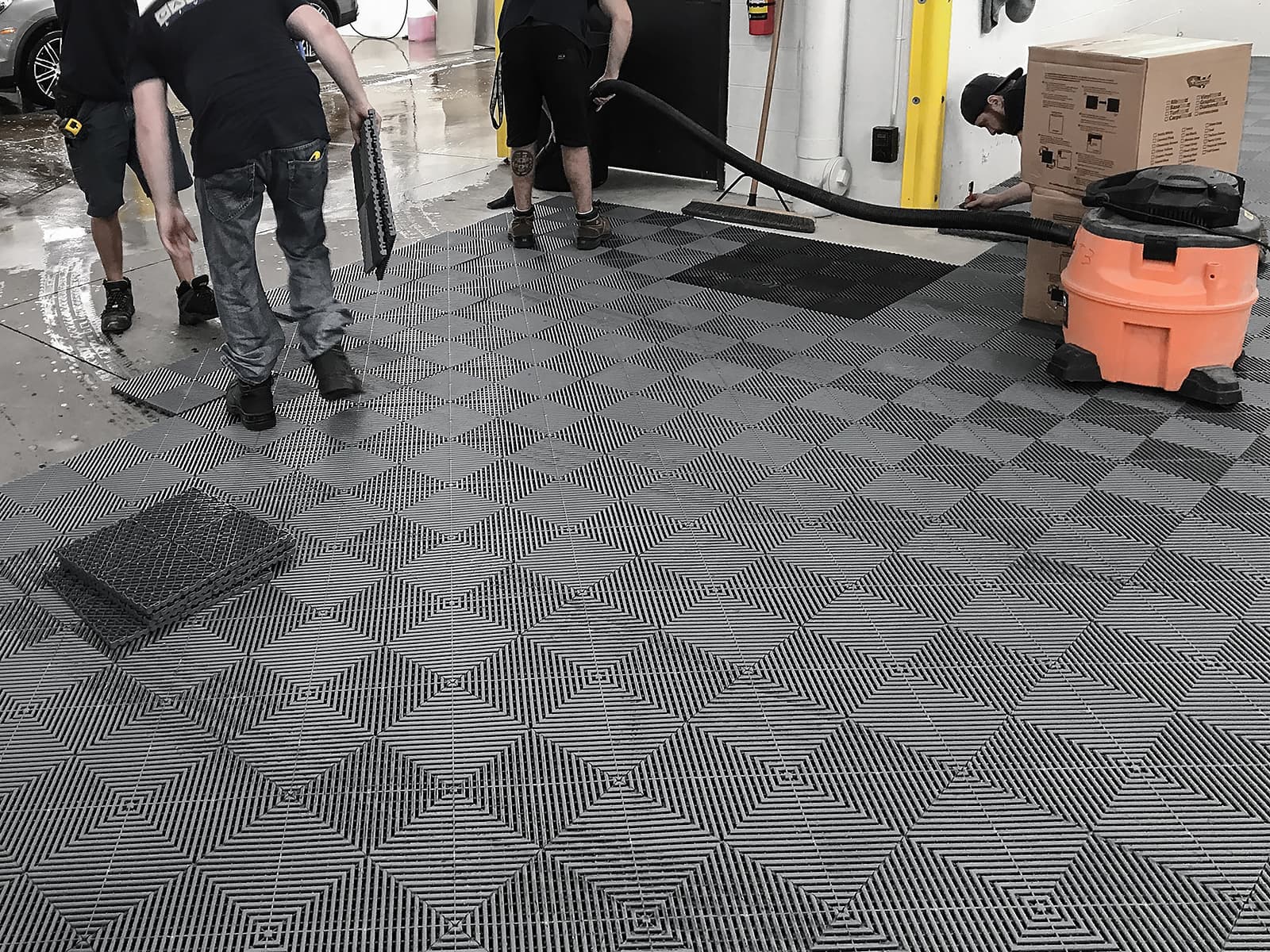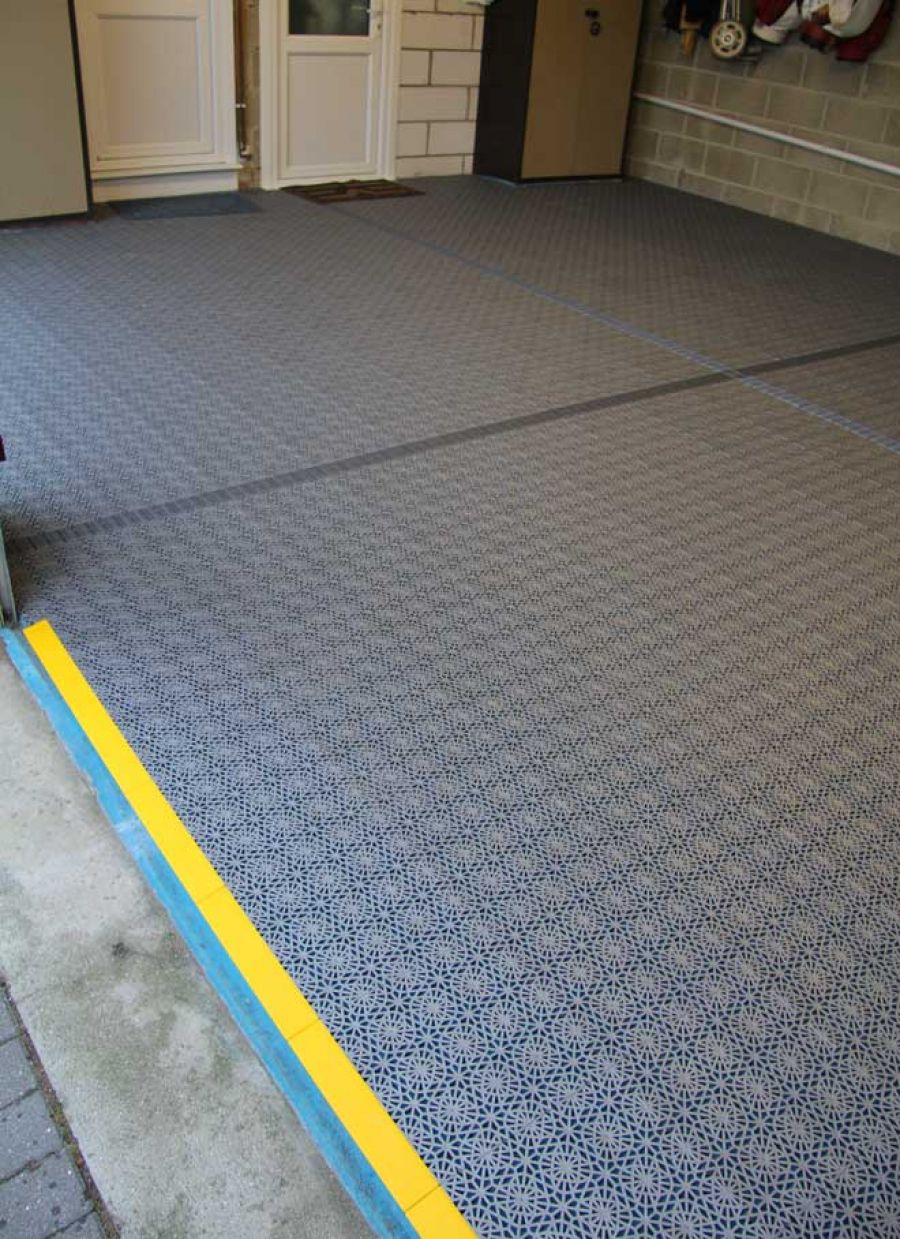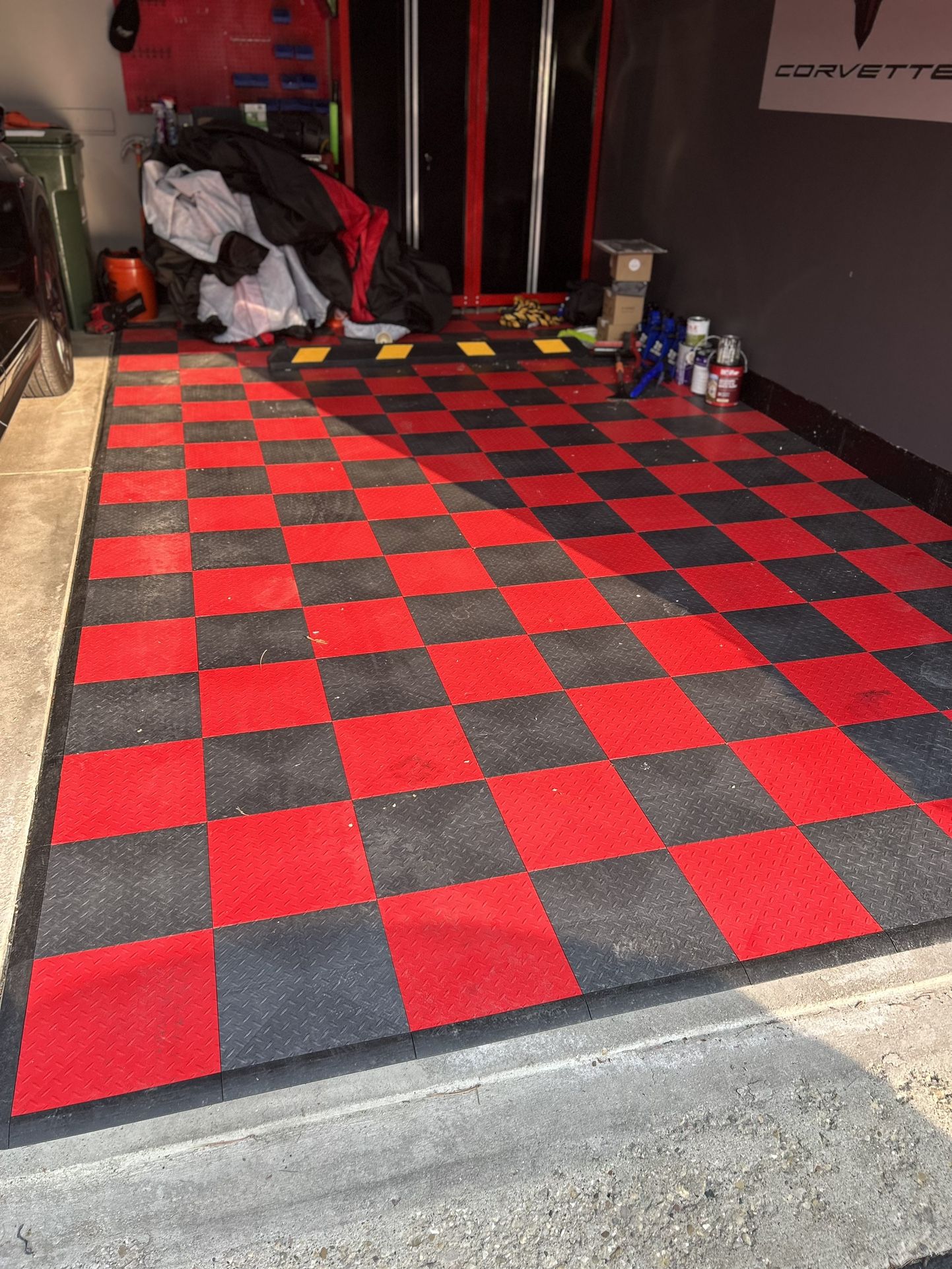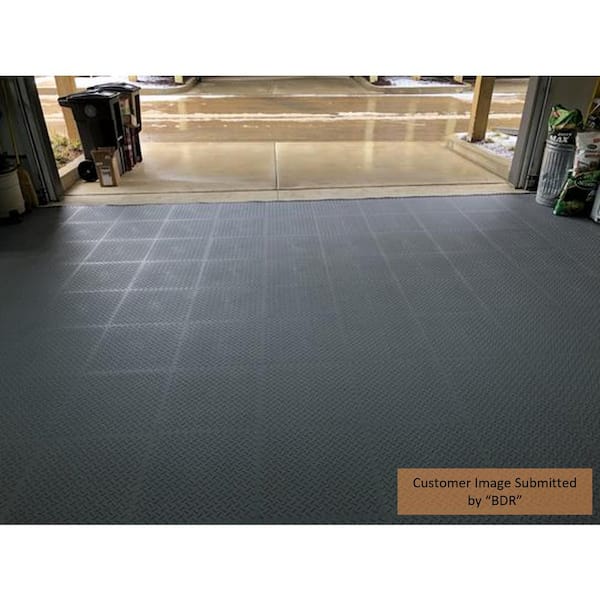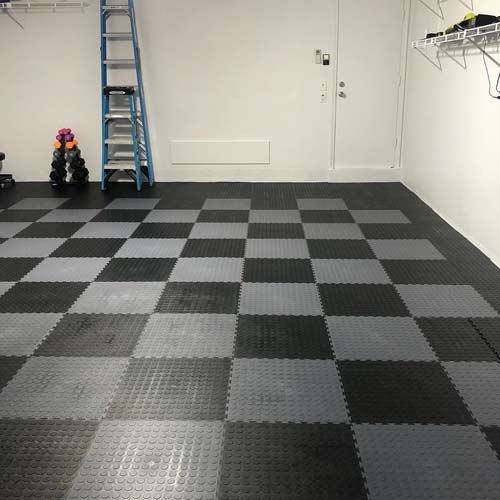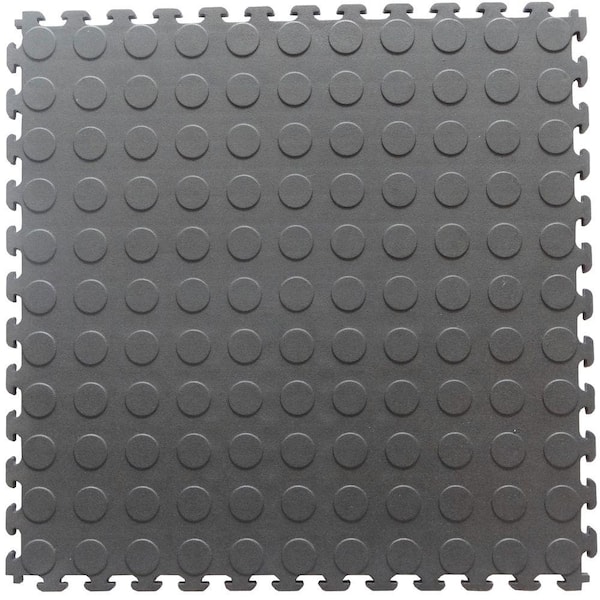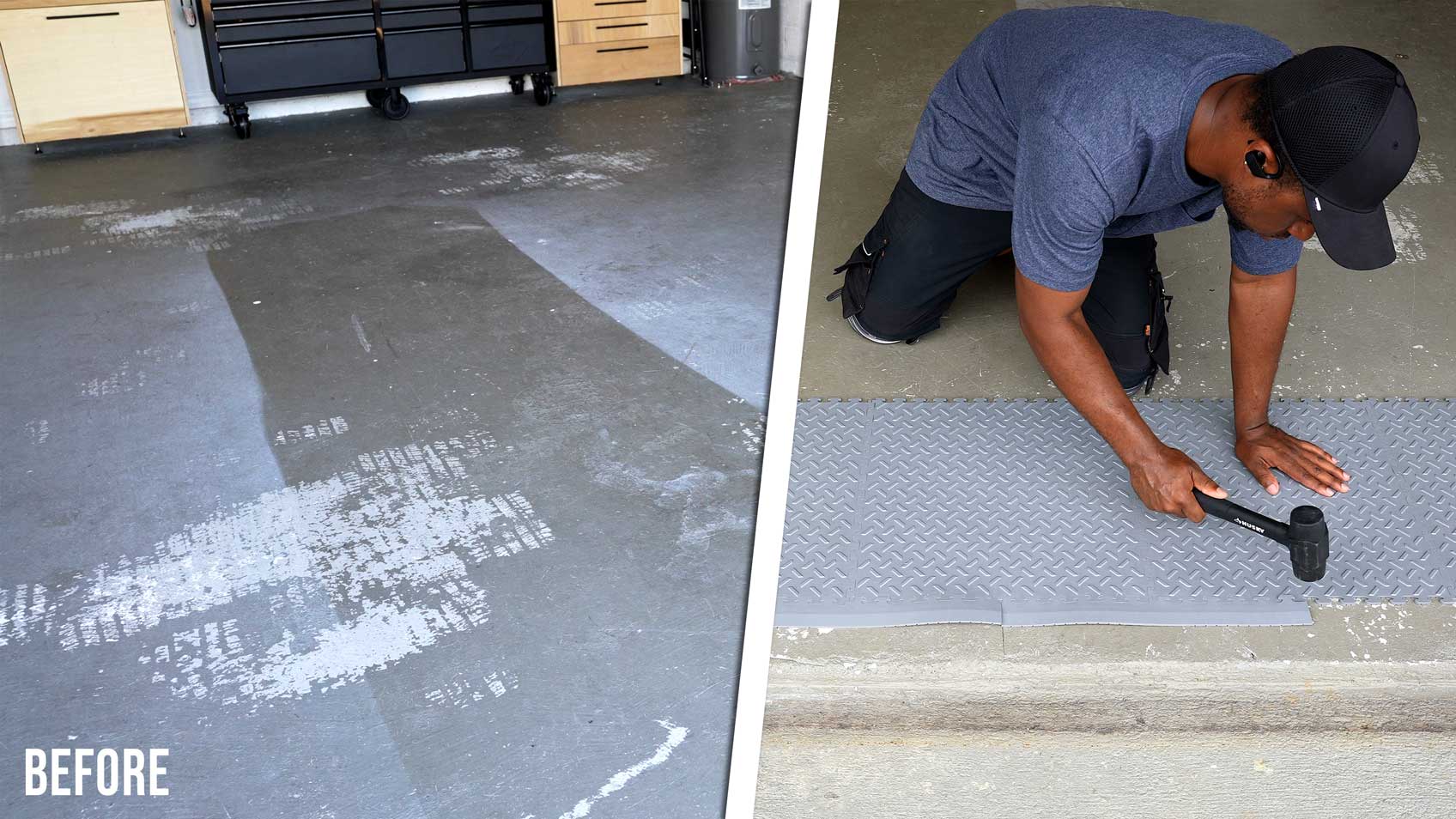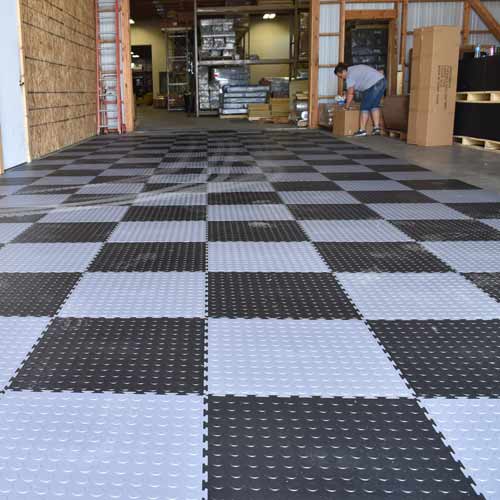Introduction to PVC Garage Flooring Tiles
PVC garage flooring tiles have gained immense popularity due to their versatility, durability, and aesthetic appeal. Made from polyvinyl chloride (PVC), these tiles offer a robust and long-lasting solution for garage floors, catering to both functional and decorative needs.
- What are PVC Garage Flooring Tiles? PVC garage flooring tiles are interlocking tiles made from polyvinyl chloride, a type of plastic known for its strength and resilience. These tiles are designed to withstand heavy loads, making them ideal for garage environments where vehicles and heavy equipment are stored.
- Variety and Customization: One of the standout features of PVC garage flooring tiles is the wide variety of colors, patterns, and textures available. Homeowners can mix and match different styles to create a customized look that suits their taste and complements the overall design of their home.
- Easy Installation: The interlocking design of PVC tiles allows for a straightforward installation process. No adhesives or special tools are required, making it a DIY-friendly option. This feature also means that individual tiles can be easily replaced if damaged.
- Durability and Resistance: PVC is known for its durability and resistance to chemicals, oils, and other substances commonly found in garages. This makes PVC tiles an excellent choice for withstanding the wear and tear of a busy garage environment.
- Comfort and Safety: PVC garage flooring tiles offer a comfortable walking surface that is less tiring to stand on compared to bare concrete. Additionally, the textured surfaces of these tiles provide slip resistance, enhancing safety in the garage.
- Environmental Considerations: Many PVC tiles are made from recycled materials, making them an environmentally friendly option. They are also recyclable, which means they have a lower environmental impact compared to some other flooring materials.

Benefits of Using PVC Tiles in Your Garage
PVC garage flooring tiles provide numerous benefits, making them a superior choice for many homeowners looking to upgrade their garage floors. From ease of maintenance to enhanced durability, these tiles offer several advantages.
Durability and Longevity One of the main benefits of PVC garage flooring tiles is their durability. PVC is a tough material that can withstand heavy loads, impacts, and abrasions. This makes it an ideal choice for a garage environment where vehicles and heavy equipment are stored.
Chemical and Stain Resistance Garages are often exposed to chemicals, oils, and other substances that can cause stains and damage. PVC tiles are resistant to these substances, ensuring that spills can be easily cleaned without damaging the flooring.
Ease of Maintenance Maintaining PVC garage flooring tiles is straightforward. They can be easily cleaned with a broom, mop, or vacuum. For more stubborn dirt and stains, a mild detergent and water are usually sufficient to keep the tiles looking new.
Comfort Underfoot Unlike concrete floors, PVC tiles offer a more comfortable surface to walk and stand on. This can be particularly beneficial for those who spend a lot of time in their garage working on projects or maintaining vehicles.
Aesthetic Appeal PVC tiles are available in a wide range of colors and patterns, allowing homeowners to create a visually appealing space. This can transform a garage from a purely functional space to an attractive extension of the home.
Quick and Easy Installation The interlocking design of PVC tiles makes installation quick and easy, often taking just a few hours. This means that homeowners can enjoy their new garage floor without the hassle and expense of professional installation.
Installation Guide for PVC Garage Flooring Tiles
Installing PVC garage flooring tiles is a relatively simple process that can be done without professional help. Here’s a step-by-step guide to help you achieve a professional-looking installation.
Prepare the Surface Start by cleaning the garage floor thoroughly. Remove any debris, dust, or dirt that could interfere with the installation process. Repair any cracks or imperfections in the concrete to ensure a smooth surface for the tiles.
Plan Your Layout Before you begin installing the tiles, plan your layout. Measure the dimensions of your garage and determine the best starting point. It’s often recommended to start from the center of the room and work your way out to ensure an even and symmetrical installation.
Begin Installation Start placing the tiles from your chosen starting point. Align the interlocking edges and press them together firmly until they click into place. Continue this process, working your way across the floor. Use a rubber mallet if necessary to ensure a tight fit.
Cutting Tiles You may need to cut some tiles to fit around edges and obstacles. Measure the required dimensions and use a utility knife or a jigsaw to make precise cuts. Always wear protective gear when cutting tiles to avoid injuries.
Finish the Edges To give your garage floor a polished look, use edge pieces or trim around the perimeter of the floor. These pieces snap into place like the tiles and provide a smooth transition between the floor and the walls.
Post-Installation Inspection Once all the tiles are installed, walk over the entire floor to check for any loose tiles or gaps. Ensure that all tiles are securely interlocked and make any necessary adjustments. Clean the surface to remove any dust or debris from the installation process.
Maintenance and Care for PVC Garage Flooring
Maintaining and caring for PVC garage flooring is relatively easy, but following a regular maintenance routine can extend the lifespan of your floor and keep it looking its best. Here are some tips for effective maintenance.
Regular Cleaning Sweep or vacuum the floor regularly to remove dust, dirt, and debris. This prevents particles from accumulating and potentially scratching the surface of the tiles. A soft-bristle broom or a vacuum with a hard floor setting works best.
Mopping For a deeper clean, mop the floor with a mixture of mild detergent and warm water. Avoid using harsh chemicals or abrasive cleaners as they can damage the tiles. Ensure the floor is completely dry before walking on it to prevent slips and falls.
Handling Spills Wipe up any spills immediately to prevent staining. Although PVC tiles are resistant to most chemicals, prolonged exposure to certain substances can cause discoloration. Use a cloth or paper towel to blot spills and clean the area with a mild detergent solution.
Preventing Damage Place mats or rugs at entry points to reduce the amount of dirt and moisture tracked onto the floor. Use furniture pads under heavy equipment or tools to prevent indentations and scratches. Avoid dragging heavy objects across the floor to maintain its appearance.
Periodic Inspection Regularly inspect the floor for any signs of damage or wear. Replace any damaged or worn tiles promptly to maintain the integrity and appearance of the floor. The interlocking design of PVC tiles makes it easy to replace individual tiles without disturbing the rest of the floor.
Dealing with Stains For stubborn stains, use a non-abrasive cleaner and a soft cloth or sponge. Avoid using steel wool or scouring pads as they can scratch the surface of the tiles. Rinse the area thoroughly with water after cleaning to remove any residue.
Comparing PVC Tiles to Other Garage Flooring Options
When choosing a garage flooring solution, it’s essential to consider various options and their respective advantages and disadvantages. Here’s a comparison of PVC tiles with other common garage flooring options.
PVC Tiles vs. Epoxy Coating
Installation: PVC tiles are easier and quicker to install compared to epoxy coatings, which require surface preparation, curing time, and multiple coats.
Durability: Both options are durable, but epoxy coatings can chip or crack over time, while PVC tiles can be easily replaced if damaged.
Maintenance: PVC tiles are low maintenance and easy to clean, whereas epoxy coatings may require more intensive cleaning and touch-ups.
PVC Tiles vs. Concrete Sealing
Installation: Sealing concrete involves applying a protective layer over the existing concrete, which can be labor-intensive. PVC tiles, on the other hand, can be installed directly over the concrete with minimal effort.
Durability: Sealed concrete can still be prone to cracking and staining, whereas PVC tiles offer better resistance to chemicals and impacts.
Comfort: PVC tiles provide a more comfortable and slip-resistant surface compared to sealed concrete, which can be hard and slippery.
PVC Tiles vs. Rubber Flooring
Durability: Both PVC tiles and rubber flooring are durable and resistant to heavy loads. However, rubber can sometimes be more susceptible to staining and discoloration.
Cost: Rubber flooring tends to be more expensive than PVC tiles. PVC tiles offer a cost-effective alternative without compromising on durability.
Installation: Both types of flooring are easy to install, but PVC tiles typically offer more variety in terms of design and customization.
PVC Tiles vs. Vinyl Rolls
Installation: Vinyl rolls require precise cutting and adhesive application, making installation more challenging compared to the interlocking design of PVC tiles.
Durability: PVC tiles are generally more durable and resistant to damage than vinyl rolls, which can tear or dent under heavy loads.
Maintenance: Both options are easy to clean, but PVC tiles have the advantage of individual tile replacement in case of damage.
PVC Tiles vs. Carpet Tiles
Usage: Carpet tiles are not typically recommended for garages due to moisture absorption and difficulty in cleaning. PVC tiles, being water-resistant, are better suited for garage environments.
Durability: PVC tiles are more durable and resistant to stains and wear compared to carpet tiles, which can wear down quickly in high-traffic areas.
Aesthetic: While carpet tiles offer a softer and warmer look, PVC tiles provide a sleek, modern appearance suitable for garages.
PVC Tiles vs. Painted Concrete
Installation: Painting concrete is a labor-intensive process that requires thorough surface preparation and multiple coats. PVC tiles offer a quicker and easier installation process.
Durability: Painted concrete can chip and wear over time, especially under heavy use. PVC tiles offer better long-term durability and resistance to damage.
Maintenance: PVC tiles are easier to maintain and clean compared to painted concrete, which may require periodic touch-ups and repainting.
Husky 18.4 in. x 18.4 in. Gray PVC Garage Flooring Tile (6-Pack
Home Garage Coin Top PVC Black Ever 3/16 Inch x 20×20 Inches
Norsk Multi-Purpose 18.3 in. x 18.3 in. Dove Gray PVC Garage
Coin Flex Tiles – Modular PVC Garage Floor Tiles
How to Choose Garage Flooring – Flooring Inc
How to Install Husky PVC flooring
Hereu0027s How You Fit Interlocking Garage Floor Tiles – Step by Step (Quick u0026 Easy) by GFTC
Home Garage Coin Top PVC Gray Ever 3/16 Inch x 20×20 Inches
Related Posts:
